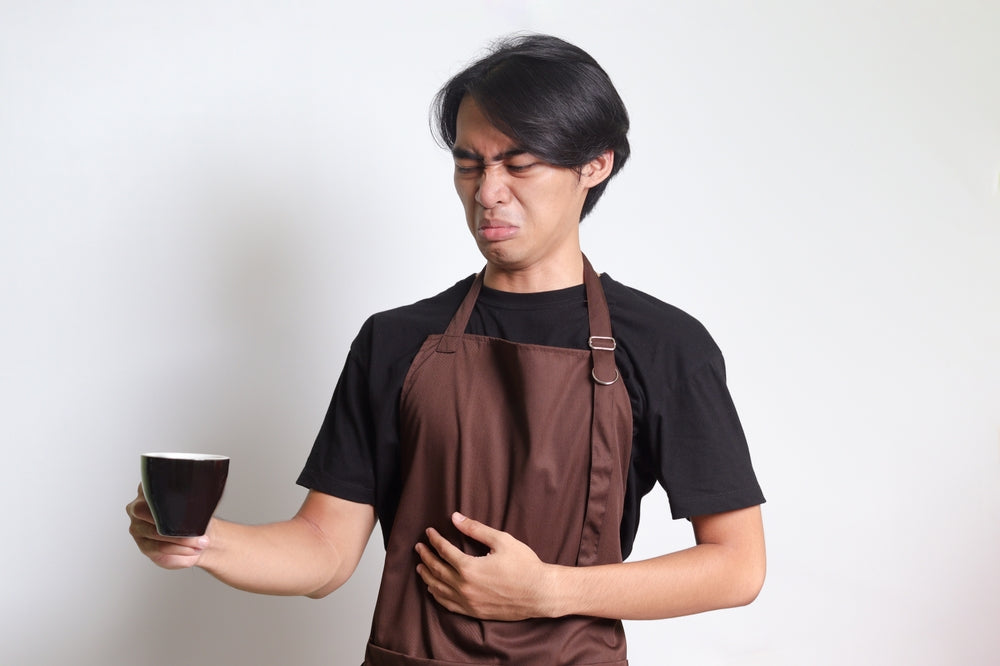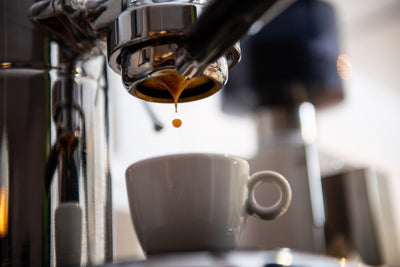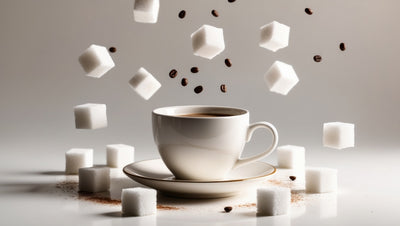
Why does your coffee taste bitter?
When you need your coffee fix, it can feel like just about any cup of coffee will do.
But if you take that much anticipated first sip and recoil at the bitterness, you will quickly realise that the coffee you have just brewed won’t do at all!
An overly bitter brew is quite simply offensive to your taste buds.
What causes such unpleasant bitterness and, more importantly, how do you ensure that you never experience it again?
High altitude
You might wish to reach for the skies with your coffee brewing techniques and as it turns out, altitude matters.
There are two principal types of coffee bean – Robusta and Arabica. You probably already know that.
What you might not know is that Arabica beans are grown at higher elevations than their Robusta cousins.
For this reason, Robusta beans are more cost-effective to cultivate and are therefore cheaper to buy. That might seem like good news, but Robusta beans contain more acids and less sugar than Arabica beans and so can deliver a bitter taste. In addition, Robusta beans feature double the caffeine found in Arabica beans and caffeine happens to be one of the most bitter substances you will ever encounter.
If your coffee tastes too bitter and you are brewing with Robusta beans, switch to Arabica beans immediately!
Wake up and smell the coffee
Nothing compares to the heavenly and comforting aroma of fresh coffee. That’s why property experts recommend that you brew coffee when showing prospective buyers around your home. Unless it is acrid, of course!
Not all coffee beans boast an aroma to die for. Beans that have outstayed their welcome may have begun to decay and will assault your senses with an off-putting acrid smell. That sharp aroma is a warning that you can expect a bitter brew from those beans.
There is no point in freshly grinding and brewing your coffee if your beans are as old as the hills that they came from. It’s important to use beans within a few weeks of their roasting date and to properly store beans once you have opened the bag.
See the light
Your issue with your coffee could be the nature of the roast you have chosen. The darker the roast, the more bitterness you will experience. Many coffee lovers adore dark roasted coffee, and it can taste great if properly brewed. However, a darker roast might not be the right choice for you. Try medium roasted or lightly roasted beans instead.
Back to the grind
If your coffee tastes bitter, it could simply be that your grind is too fine for your brewing method and so your coffee is over extracted. Try a coarser grind and you should find that your drinks are considerably improved.
Feel the heat
Water temperature matters when you are brewing. You don’t want to pour cold water over your beans (unless you are cold brewing) and you wouldn’t want to scald them either.
If you are brewing using a dripper or French press, the ideal water temperature for lightly roasted coffee is 96 Celsius and for dark roasts the best temperature is 90 Celsius. You will find that the wrong water temperature will lead to over extracted or under extracted coffee, both of which will taste more bitter than you might like.
All of which means that a thermometer would be a great investment.
Hell or high water
Precision is key to the perfect brews and so it is vital to establish the right coffee to water ratio. That ratio will depend on the coffee you have chosen and your personal taste.
You should indulge in a little trial and error. One part coffee to 16 parts water is a good starting point and you can then tweak things to nail your brewing sweet spot.
Think about treating yourself to a weighing scale as this will enable you to accurately measure your coffee to ensure consistent results.
Dull as ditchwater
You wouldn’t want to use ditchwater to brew your coffee and you might wish to avoid your local tap water too. Tap water contains chemical compounds and can vary greatly from one region to another. Your tap water could certainly impact the taste of your drinks.
For this reason, It’s best to use filtered or bottled water to protect your brewing process from impurities.
The waiting game
Leave your coffee brewing in your French press for too long and the waiting game could result in bitter tasting coffee, especially if you have selected dark roast beans or a fine grind. Experiment with brewing times to establish what works best for you.
Your pour rate when using a dripper could also be an issue. Pour too quickly and you will be forced to endure a weak, under extracted coffee. Pour too slowly and bitterness could ensue. A drip kettle will give you greater control over your pour.
Cleanliness is next to godliness
Dirty equipment will always impact the taste of your coffee. So, if you are brewing using a machine, clean that machine regularly and ensure that all tools and vessels are cleaned after every use.
The work of the devil
We’ve all done it – brewed enough coffee for several cups and then reheated the portion that we left to go cold. But reheating is the devil’s work! Coffee begins to degrade as soon as it has been brewed and reheating makes matters worse.
It’s best to brew only the volume of coffee that you will drink straight away. A bigger brew might save you time but will ruin the taste of your drinks.
Conclusions
Coffee is very much a matter of personal taste and so coffee that is too bitter for one drinker might put a smile on the face of another. There will be a reason why your brew isn’t hitting the spot and once you have discovered what that reason is, you can make the required changes. Your next delicious brew could be just minutes away.



Leave a comment